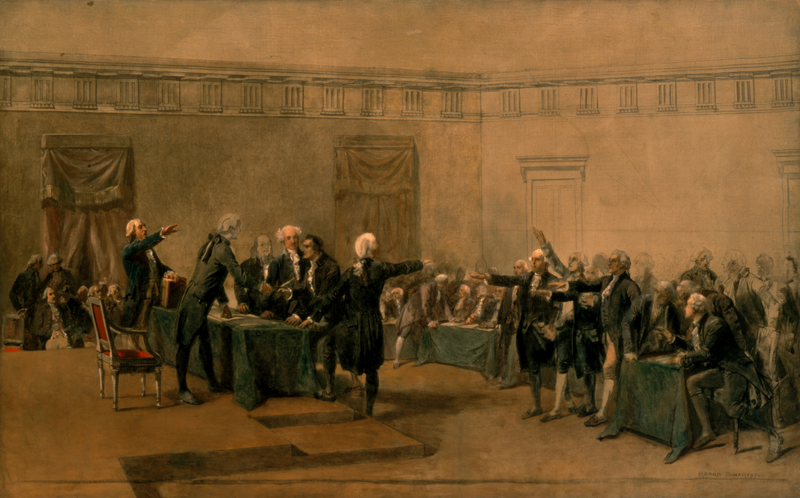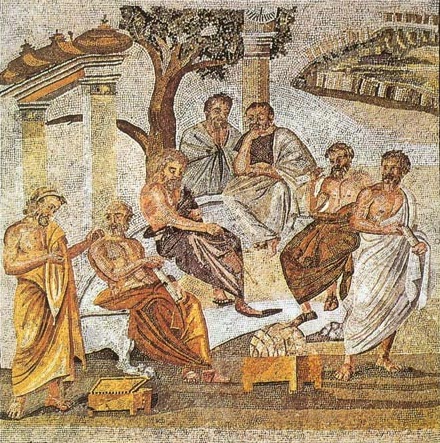Ethics at Harvard, 1810

In the founding era, one graduated by means of a scholastic practice in which seniors argued various propositions (in Latin) in a public forum. These lists of theses give one a sense of what the institution thought, as an institution, ought to be taught to all of its students. Here’s the “Ethics” section for Harvard in 1810, translated from the Latin:
Ethics is the science which treats everything pertaining to (mores) manners and morals.
1. Moral precepts are deduced only from the will of God.
2. The precepts which are called the laws of nature reason unfolds to mankind.
3. Wisdom consists in the recognition of the precepts pertaining to morals ; virtue consists in their assiduous observation.
4. The difference between good and evil, virtue and vice, set up by God is immutable; because it is founded on the nature of things.
5. The expectation of reward or punishment connected with the command of God is absolutely necessary for moral obligation.
6. God demands the actions which beget happiness; He prohibits those which bring misery.
7. Therefore when concerning any action there is question of knowing the will of God by the light of nature the investigation must determine whether that action seems to be connected with the increasing of general happiness or the lessening of it.
8. It is necessary that the will of God as a criterion be the test of the happiness of our actions.
9. The divine laws concern especially thought; because on them our actions depend.
10. An action done for the sake of praise or reward ought not only to be good in itself but ought to be done from a just motive and out of reverence for the divine will.
11. Anyone who omits a duty equally with one who violates a clear obligation is to be considered a criminal (omission is as bad as commission).
12. Men are accustomed to act more from habit than from thought
13. Therefore care must be taken that we mold ourselves to good morals by habit.
14. The chief sources of virtue and happiness are the worship of God and the exercise of social feelings.
15. The divine laws for the most part regard the actions which spring from the affections of the soul; therefore care must be taken that we make these affections obedient to reason.
16. In the accomplishment of all duties of benevolence this must be particularly cared for that everyone whose need is the greatest shall receive the most help.
17. Those crimes are less serious which happen suddenly through some perturbation of mind; than those which are premeditated and deliberated upon.
18. Loyalty in the keeping of promises and pacts is particularly necessary in commerce and in social life.
19. Promises and pacts which agree with the laws of nature are always to be observed and fulfilled.
20. Promises which are forced from one by unjust violence or which were made because of deception need not be kept.
21. Even if advantages should accrue to us from violating the law, greater disadvantages will surely come from the same source,
22. Therefore it is not allowed to do evil that good may come from it.
23. To neglect the laws of nature is a crime that must be recognized; those who do this are worthy of punishment.
The American Mind presents a range of perspectives. Views are writers’ own and do not necessarily represent those of The Claremont Institute.
The American Mind is a publication of the Claremont Institute, a non-profit 501(c)(3) organization, dedicated to restoring the principles of the American Founding to their rightful, preeminent authority in our national life. Interested in supporting our work? Gifts to the Claremont Institute are tax-deductible.
On campus, today's forlorn meritocrats no longer believe what the apparatchiks are teaching them.
Libertarianism again fails natural right.
Every nation is shaped by its canon. It’s time to shape America’s.





